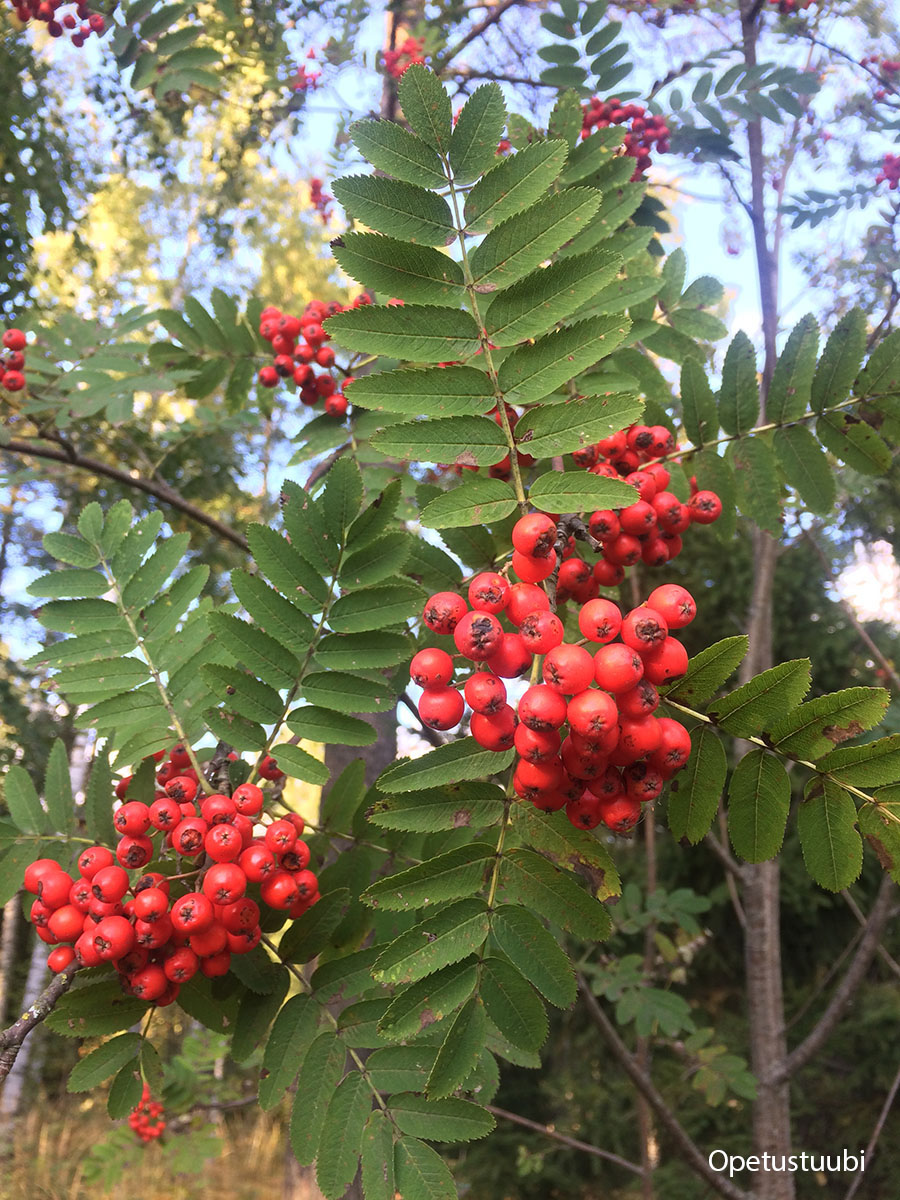European mountain-ash identification and control
Sorbus aucuparia, Rosaceae Family

European mountain-ash is a deciduous, gray-barked small tree with spreading branches, 15 to 40 feet tall, with large clusters of bright orange-red berries. Young growth has soft, gray hairs. Leaves are divided into 11-15 leaflets (pinnately compound) that are oval to narrow, pointed, about 1-2 inches long, and sharply serrate on the edge the full length of the leaflet. Flowers are white and arranged in a large, flat-topped cluster (panicle), with at least 75 flowers. Flowers have 5 white rounded petals and 15-20 stamens that are almost as long as the petals. Sepals are hairy, fused at the base into a cone with triangular lobes, and persistent (remain after fruits form). Fruits are round, fleshy, bright red to orange-red and hang down (pendulous). Fruits are eaten by birds, the plant’s primary means of seed dispersal.
European mountain-ash has spread into natural woodlands and urban forests and can crowd out native plants and trees. It is considered an invasive plant in King County and is on the King County Weeds of Concern list. Control is recommended where natural resources are being protected or as part of a stewardship plan. Young seedlings and saplings can be dug out. Contact the noxious weed program for advice on effective control methods for mature trees or large infestations.
Make sure not to confuse European mountain-ash (Sorbus aucuparia) with the very similar native species of mountain-ash often found in the mountains in Washington. The two native mountain-ash species are Sorbus scopulina and Sorbus sitchenisis. Both are generally more shrub-like than the European species, but when the plants are young it can be difficult to distinguish them. If you are unsure, contact the Noxious Weed Program or a botanist for identification assistance before removing them.
Related information
- Northwest native plant guide
- Agriculture in King County, Washington
- Northwest yard and garden
- Animals, plants and habitat
Related agencies
Program offices are located at 201 S. Jackson St., Suite 600, Seattle, WA 98104. To contact staff, see the Noxious Weed Control Program Directory, send an email, or call 206-477-WEED (206-477-9333).

 Translate
Translate